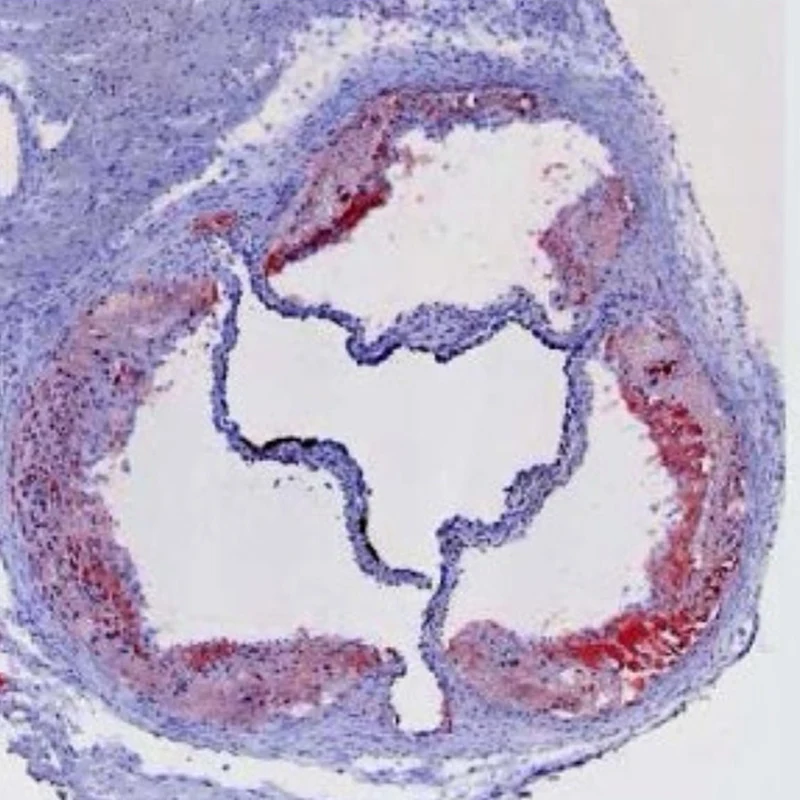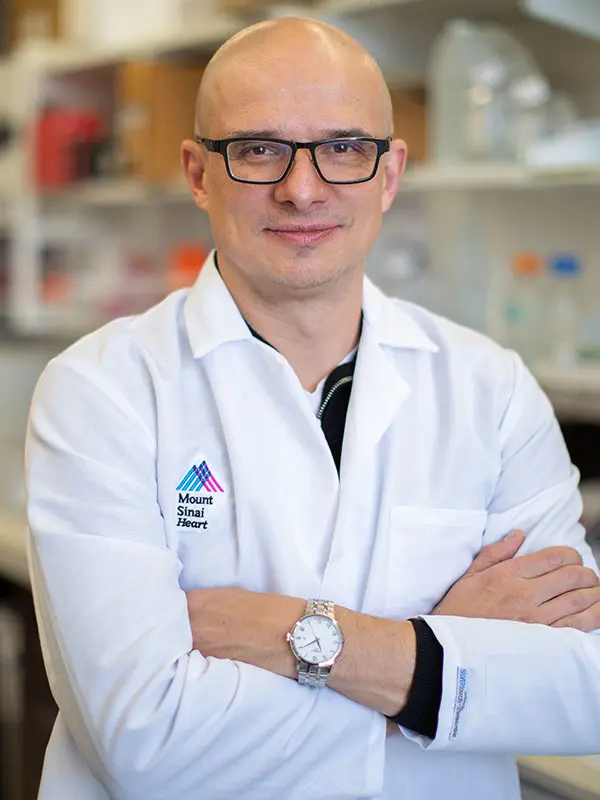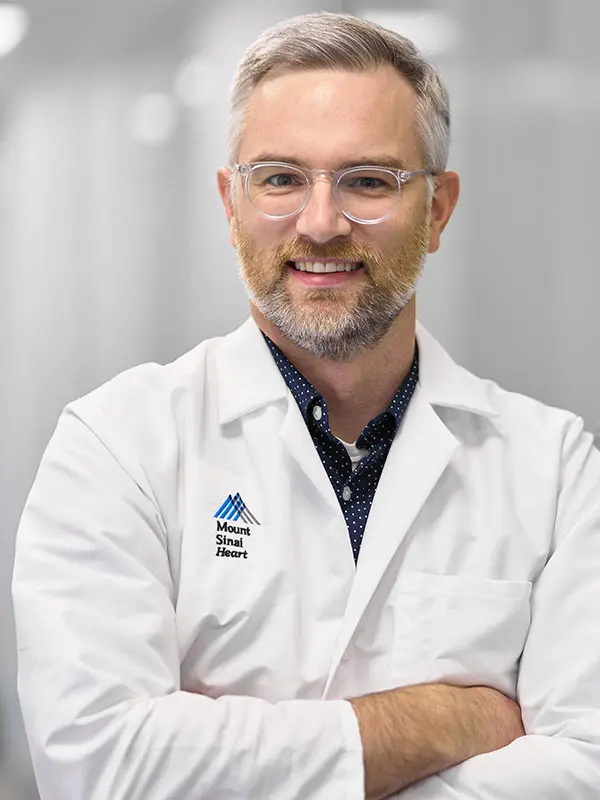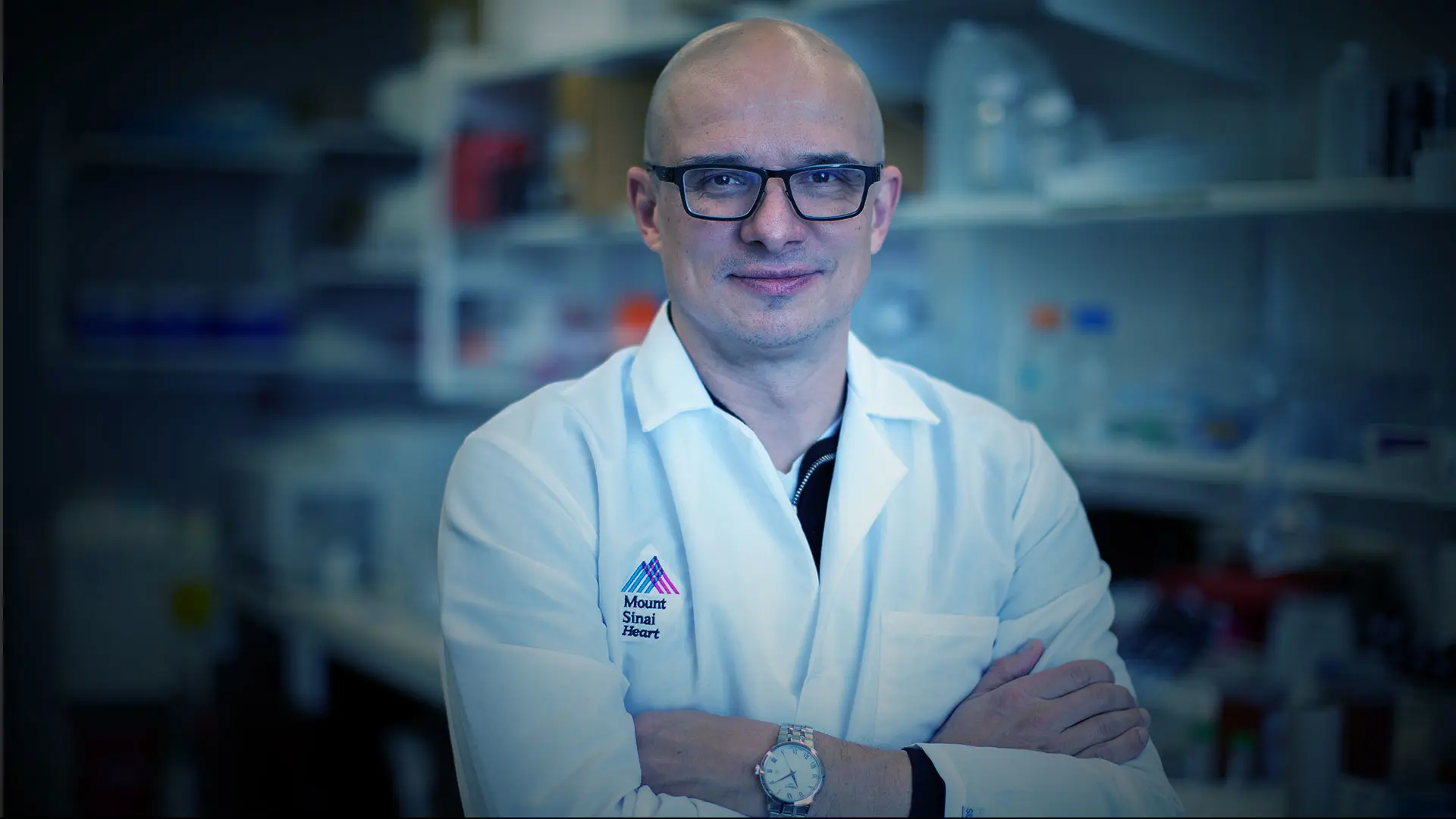Filip Swirski, PhD, an internationally recognized leader in cardiovascular immunology research, joined Mount Sinai in summer 2021 as the inaugural Director of the new Cardiovascular Research Institute at the Icahn School of Medicine at Mount Sinai. Dr. Swirski intends to build on Mount Sinai’s legacy of discovery and innovation with a renewed focus on lifestyle and prevention, systems physiology and bioengineering, and genetic medicine.
“I am very excited to join the Mount Sinai community and take on this new and important role,” says Dr. Swirski, the Arthur and Janet C. Ross Professor of Medicine (Cardiology) and Professor of Diagnostic, Molecular, and Interventional Radiology. “The Cardiovascular Research Institute will experience rapid growth over the next several years as it expands thematically and builds links with other institutes and departments.”
Before joining Mount Sinai, Dr. Swirski was a professor at Harvard Medical School and a principal investigator at Massachusetts General Hospital. He has made groundbreaking discoveries on the role of immunity and inflammation in atherosclerosis and its complications. As Director of the Cardiovascular Research Institute, Dr. Swirski will build and lead a collaborative, multidisciplinary team that will make the institute a global hub for fundamental and translational cardiovascular science within the context of the hematologic, immune, metabolic, and nervous systems. Dr. Swirski will also hold positions in Mount Sinai’s Precision Immunology Institute and BioMedical Engineering and Imaging Institute.
The goal of Dr. Swirski’s laboratory is to understand how inflammation protects from and contributes to cardiometabolic, infectious, and neurodegenerative diseases. “We are interested in elucidating how neural circuits communicate with the immune system to anticipate danger and how metabolic pathways allocate resources to either license or restrict leukocyte production and function,” he says.
As Director of the Cardiovascular Research Institute, Dr. Swirski intends to continue leading his own lab to better understand how lifestyle affects physiology and cardiovascular disease. However, he has been spending the bulk of his time meeting with faculty and trainees, cultivating connections between investigators with the goal of promoting collaboration, advocating for cardiovascular science, and shaping the fundamental and translational endeavors of the Institute.
“Mount Sinai has a rich history of innovation and discovery and has made groundbreaking contributions to cardiology,” Dr. Swirski says. “And there is immense potential for the Cardiovascular Research Center to grow as a Cardiovascular Research Institute.”
In a detailed implementation plan, Dr. Swirski’s intent is to cultivate the existing themes of cardiovascular research at Mount Sinai while expanding in new directions. Many faculty at the Center focus on therapeutic approaches for cardiovascular disease, emphasizing gene, molecular, and cell- based techniques. The CVRI includes investigators studying cellular heterogeneity in atherosclerosis as well as investigators aiming to understand mechanisms in heart failure and familial heart diseases.
The CVRI will aim, over several years, to expand thematically by cross-appointing faculty, Dr. Swirski says, and also by recruiting faculty with relevant backgrounds and expertise and building even stronger links with other Institutes at Mount Sinai. The laboratories within the Institute freely exchange ideas and collaborate, with these areas of focus:
Lifestyle and Prevention: While recognition of modifiable risk factors—such as smoking, poor diet, and stress—is growing, the understanding of how they influence cardiovascular disease progression at a fundamental and biological level is limited. Exploring how lifestyle and behavior alter cardiovascular pathology is uncovering new and manifold mechanisms of disease.
Systems Physiology and Bioengineering: The aim of this dedicated group of labs is to study cardiovascular health in the broad context of body systems. Understanding the mechanisms of inter-organ communication and their impact on cardiovascular health requires developing inquiries that bridge multiple disciplines, including immunology, hematology, neuroscience, biochemistry, endocrinology, and vascular biology. This includes tissue and organoid engineering, genetic engineering/gene editing for disease modeling, computational modeling, and biomedical device development, which all model and/or impact cardiovascular function in a systems level context.
Genetic Medicine: Genomic technologies involving stem cells, gene transfer and RNA modification approaches not only advance the understanding of the molecular basis of the disease but also facilitate development of novel cardiovascular therapeutics. At CVRI, the fundamental approach is to modify gene expression at a single gene level (such as gene therapy using modified RNA) or at the entire genome level (such as cell therapy using stem cells, exosomes, or engineered tissues) that results in a modified phenotype for therapeutic purposes. Laboratories are also investigating host immune responses and epigenetic modifications that regulate expression of genes and proteins under pathological manifestations.
“The role of the CVRI director is one of service to the faculty and students at Mount Sinai. ”
- Filip Swirski, PhD

Aortic root cross section depicting atherosclerotic lesions. The image shows fat accumulation in the vessel wall (red).
The training of MD students and clinical fellows is another important priority for Dr. Swirski, as is supporting diversity, equity, and inclusion. “Fostering diversity at all levels—trainee to full professor—is an essential endeavor that requires vigilance and a defined plan,” he says. Specific action items to cultivate and increase diversity may include helping establish programs that ensure promising research projects continue unabated when an investigator is on parental leave and working to establish research fellowships for physicians and scientists in underrepresented groups, he says.
“The role of the CVRI director is one of service to the faculty and students at Mount Sinai,” Dr. Swirski says. “I recognize the position entails greater responsibility and requires dedicated, tireless, principled, and equitable leadership.”
Dr. Swirski obtained his PhD at McMaster University in Hamilton, Canada, and completed postdoctoral studies at Brigham and Women’s Hospital in Boston. He is a highly cited researcher and is the recipient of numerous prestigious awards including the Jeffrey M. Hoeg Award and the Established Investigator Award from the American Heart Association, as well as the Outstanding Investigator Award from the National Heart, Lung, and Blood Institute. He is the American Coordinator of a Leducq Foundation Transatlantic Network of Excellence, sits on numerous editorial and scientific advisory boards, and has consulted for several biotech companies.
“This is a spectacular recruitment for Mount Sinai Heart. We look forward to the exciting scientific leadership that Dr. Swirski will bring to our Cardiovascular Research Institute,” says Valentin Fuster, MD, PhD, Director of Mount Sinai Heart and Physician-in-Chief of The Mount Sinai Hospital.
Featured

Filip K. Swirski, PhD
Director of the Cardiovascular Research Institute, Arthur and Janet C. Ross Professor of Medicine (Cardiology), and Professor of Diagnostic, Molecular, and Interventional Radiology

Cameron McAlpine, PhD
Assistant Professor of Medicine (Cardiology), and Neuroscience
